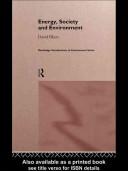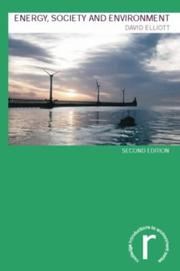| Listing 1 - 10 of 133 | << page >> |
Sort by
|
Book
ISBN: 9171006168 Year: 2000 Publisher: Stockholm Moderna Museet
Abstract | Keywords | Export | Availability | Bookmark
 Loading...
Loading...Choose an application
- Reference Manager
- EndNote
- RefWorks (Direct export to RefWorks)
Ahtila, Eija-Liisa ; Bäckström, Miriam ; Eliasson, Olafur ; Eriksson, Annika ; Friberg, Maria ; Gamdrup, Mads ; Haaning, Jens ; von Hausswolff, Carl Michael ; Hedlund, Maria ; Hakansson, Henrik ; Karlsson Rixon, Annica ; Koester, Joachim ; Kolding, Jakob ; et al.
Beeldende kunst ; Scandinavië ; 1990-2000 --- Tentoonstellingscatalogi ; Stockholm ; Modern Museum (Moderna Museet) --- Videokunst ; video-installaties --- Fotografie ; foto-installaties --- 7.038 --- (069) --- Kunstgeschiedenis ; 1950 - 2000 --- (Musea. Collecties) --- Scandinavië --- Art, Scandinavian
Book
ISBN: 3030047652 3030047644 Year: 2019 Publisher: Cham : Springer International Publishing : Imprint: Palgrave Macmillan,
Abstract | Keywords | Export | Availability | Bookmark
 Loading...
Loading...Choose an application
- Reference Manager
- EndNote
- RefWorks (Direct export to RefWorks)
This book offers a detailed account of how renewable energy has moved from the margins to the mainstream in the UK, and of the battles that have been fought to achieve this, trawling through the often troubled history of government involvement. The book examines how renewables became what now seem likely to be the dominant energy sources of the future. Renewable energy technologies, using solar and wind power and other natural energy sources, are now supplying around 30% of UK electricity and appear set to continue expanding to supply around 50% within the next decade. Although the emphasis of the book is on the UK, developments there are compared with those in other countries to provide an overall assessment of the relevance of the UK experience. Chapters explore why the UK still lags behind many other countries in deploying renewables, in part, it is argued, due to its continued reliance on nuclear power. The book ends with a discussion on what sort of changes may be expected over the coming years. The author does not assume a single answer, but invites readers to consider the possibilities. David Elliott is Emeritus Professor of Technology Policy at the Open University, UK. He worked initially with the UK Atomic Energy Authority at Harwell and then for the Central Electricity Generating Board in Bristol, before moving, in the early 1970's, to the Open University, where he carried out research and developed courses on technological innovation, focusing in particular on renewable energy technology development policy. Professor Elliott has written extensively on sustainable energy policy and is co-editor of Palgrave Macmillan’s ‘Energy, Climate and Environment’ series, and also editor of the long established journal, Renew.
Renewable energy sources --- Energy policy --- Renewable energy sources. --- Environment. --- Environmental management. --- Renewable and Green Energy. --- Energy Policy, Economics and Management. --- Environment Studies. --- Environmental Geography. --- Environmental Management. --- Environmental stewardship --- Stewardship, Environmental --- Environmental sciences --- Management --- Alternate energy sources --- Alternative energy sources --- Energy sources, Renewable --- Sustainable energy sources --- Power resources --- Renewable natural resources --- Agriculture and energy --- Renewable energy resources. --- Energy policy. --- Energy and state. --- Environmental geography. --- Geography --- Energy and state --- State and energy --- Industrial policy --- Energy conservation --- Government policy --- Balance of nature --- Biology --- Bionomics --- Ecological processes --- Ecological science --- Ecological sciences --- Environment --- Environmental biology --- Oecology --- Population biology --- Ecology

ISBN: 0415145074 9780415145077 Year: 1997 Publisher: London: Routledge,
Abstract | Keywords | Export | Availability | Bookmark
 Loading...
Loading...Choose an application
- Reference Manager
- EndNote
- RefWorks (Direct export to RefWorks)
Book
ISBN: 1137584424 9781137584427 Year: 2015 Publisher: Basingstoke: Palgrave MacMillan,
Abstract | Keywords | Export | Availability | Bookmark
 Loading...
Loading...Choose an application
- Reference Manager
- EndNote
- RefWorks (Direct export to RefWorks)

ISBN: 0415145066 Year: 1997 Publisher: London : Routledge,
Abstract | Keywords | Export | Availability | Bookmark
 Loading...
Loading...Choose an application
- Reference Manager
- EndNote
- RefWorks (Direct export to RefWorks)
Power resources --- Technology --- Environmental aspects. --- Social aspects.

ISBN: 0415304857 Year: 2003 Publisher: London : Routledge,
Abstract | Keywords | Export | Availability | Bookmark
 Loading...
Loading...Choose an application
- Reference Manager
- EndNote
- RefWorks (Direct export to RefWorks)
Power resources --- Technology --- Environmental aspects. --- Social aspects.
Digital
ISBN: 9781402096136 Year: 2009 Publisher: Dordrecht Springer Netherlands
Abstract | Keywords | Export | Availability | Bookmark
 Loading...
Loading...Choose an application
- Reference Manager
- EndNote
- RefWorks (Direct export to RefWorks)
Mathematical logic --- Algebra --- Topological groups. Lie groups --- Engineering sciences. Technology --- Computer architecture. Operating systems --- algebra --- topologie (wiskunde) --- matrices --- informatica --- systeemtheorie --- systeembeheer
Book
Year: 1994 Publisher: Oxford The Museum of Modern Art Oxford
Abstract | Keywords | Export | Availability | Bookmark
 Loading...
Loading...Choose an application
- Reference Manager
- EndNote
- RefWorks (Direct export to RefWorks)
Art styles --- Art --- History --- art [discipline] --- art history --- madí --- Xul Solar, Alejandro --- Daneri, Eugenio --- Forner, Raquel --- Arden Quin, Carmelo --- Audivert, Pompeyo --- Ballasteros, Ernesto --- Bellocq, Adolfo --- Cúnsolo, Victor --- Giron, Mónica --- Gómez Cornet, Ramón --- Greco, Alberto --- Guttero, Alfredo --- Harte, Miguel --- Hébequer, Guillermo Facio --- Hlito, Alfredo --- Laañ, Diyi --- Lacámera, Fortunato --- Llorens, Antonio --- Lozza, Raúl --- Maldonado, Tomás --- Molina Campos, Florencio --- Pombo, Marcelo --- Prati, Lidy --- Prior, Alfredo --- Rothfuss, Rhod --- Schvartz, Marcia --- Siquier, Pablo --- Spilimbergo, Lino Enea --- Suárez, Pablo --- Villalba, Virgilio --- Benedit, Luis Fernando --- Segui, Antonio --- Berni, Antonio --- Deira, Ernesto --- Grippo, Victor --- Heredia, Alberto --- Iommi, Enio --- Kosice, Gyula --- Kuitca, Guillermo --- Maccio, Romulo --- Melé, Juan --- Minujin, Marta --- Noé, Luis Felipe --- Renzi, Juan Pablo --- Stern, Grete --- Vardenega, Gregorio --- Vega, de la, Jorge --- García Uriburu, Nicolás --- anno 1940-1949 --- anno 1950-1959 --- anno 1900-1999 --- Argentina
Digital
ISBN: 9783030047658 Year: 2019 Publisher: Cham Springer International Publishing :Imprint: Palgrave Macmillan
Abstract | Keywords | Export | Availability | Bookmark
 Loading...
Loading...Choose an application
- Reference Manager
- EndNote
- RefWorks (Direct export to RefWorks)
This book offers a detailed account of how renewable energy has moved from the margins to the mainstream in the UK, and of the battles that have been fought to achieve this, trawling through the often troubled history of government involvement. The book examines how renewables became what now seem likely to be the dominant energy sources of the future. Renewable energy technologies, using solar and wind power and other natural energy sources, are now supplying around 30% of UK electricity and appear set to continue expanding to supply around 50% within the next decade. Although the emphasis of the book is on the UK, developments there are compared with those in other countries to provide an overall assessment of the relevance of the UK experience. Chapters explore why the UK still lags behind many other countries in deploying renewables, in part, it is argued, due to its continued reliance on nuclear power. The book ends with a discussion on what sort of changes may be expected over the coming years. The author does not assume a single answer, but invites readers to consider the possibilities. David Elliott is Emeritus Professor of Technology Policy at the Open University, UK. He worked initially with the UK Atomic Energy Authority at Harwell and then for the Central Electricity Generating Board in Bristol, before moving, in the early 1970's, to the Open University, where he carried out research and developed courses on technological innovation, focusing in particular on renewable energy technology development policy. Professor Elliott has written extensively on sustainable energy policy and is co-editor of Palgrave Macmillan’s ‘Energy, Climate and Environment’ series, and also editor of the long established journal, Renew.
Nature protection --- Relation between energy and economics --- Environmental protection. Environmental technology --- Geography --- energiebeheer (technologie) --- energiemanagement (economie) --- environment --- energiebeleid --- energie-economie --- hernieuwbare energie --- milieubeleid --- kernenergie --- duurzame ontwikkeling --- geografie --- natuurbescherming
Book
ISBN: 9781509541645 Year: 2020 Publisher: Cambridge, UK ; Medford, MA, USA : Polity,
Abstract | Keywords | Export | Availability | Bookmark
 Loading...
Loading...Choose an application
- Reference Manager
- EndNote
- RefWorks (Direct export to RefWorks)
The use of renewables is spreading rapidly. Over a quarter of global electricity is already generated from solar, wind, hydro and biomass energy. With costs falling significantly, renewables are booming, helping to avoid the major climate change risks associated with fossil fuel use in power stations, homes and vehicles. But can we get rid of all of these dirty energy sources – and nuclear power, as well – and deliver 100% of our energy from renewables? Or are renewable energy systems inherently unreliable and expensive, given the need to deal with their variability? In this timely analysis, leading energy expert David Elliott tackles these issues head on and asks to what extent renewables can deliver a technologically and economically viable energy future. Exploring both the progress and problems of renewables against a backdrop of rising energy demand, he argues that, on balance, they do seem to be living up to their promises. With renewables rapidly expanding across the globe, and China now leading the pack, a renewable future could really be on the horizon.
| Listing 1 - 10 of 133 | << page >> |
Sort by
|

 Search
Search Feedback
Feedback About UniCat
About UniCat  Help
Help News
News